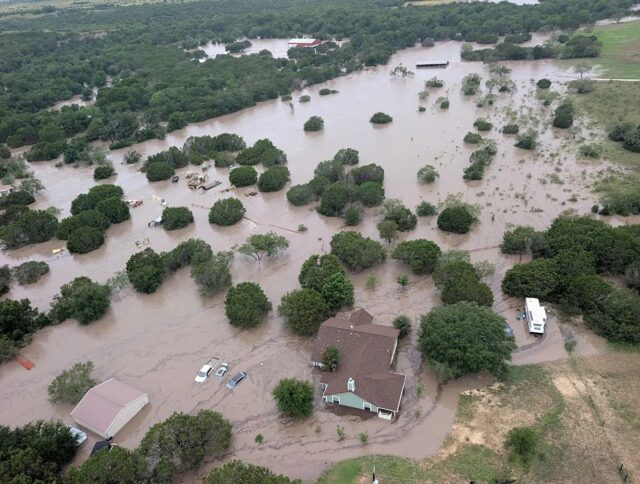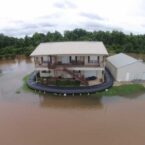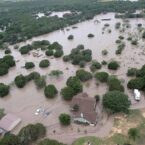
In counties like Kerr, Bandera, and Gillespie, small family farms were blindsided by what many now call the worst flash floods in living memory. Torrents of rain—over 20 inches in some areas—swelled creeks into raging rivers, giving residents little more than minutes to react.
“One moment I was milking goats, the next I was yelling for the kids to get to higher ground,” says Sarah Blake, a second-generation homesteader from Center Point. “We lost all 17 hens. The barn’s gone. But my kids are safe—and that’s what matters.”
The Losses Were Heavy
•Dozens of homesteads reported complete losses of livestock: chickens, goats, pigs, and even milking cows.
•Gardens were flattened or drowned, compost piles washed away, and root cellars left soaked and ruined.
•Seed stores, feed reserves, and even food preserved for winter have been lost.
But amid the heartbreak, stories of courage and neighborly grit have emerged.
In the absence of power or cell service, folks turned to what they’ve always known: one another.
•Amish and Mennonite neighbors were among the first to roll up sleeves, helping clear mud and rebuild fences.
•Homesteading co-ops from across Texas and Oklahoma sent truckloads of hay, feed, and clean water.
•Seed exchanges popped up spontaneously on porches and in church halls.
“We lost our bees, but the Joneses had two hives to spare,” said Micah Grant from a small farm near Ingram. “You can’t put a price on that kind of generosity.”
Replanting Hope
The land will need time to heal. Soil must be tested. Tools must be scrubbed clean of silt. But homesteaders are already planning fall crops, repairing hoop houses, and, in some cases, hand-building barns from salvaged lumber.
Federal assistance is on the way, but it’s the handshakes, seed swaps, and shared casseroles that are keeping the community together.















